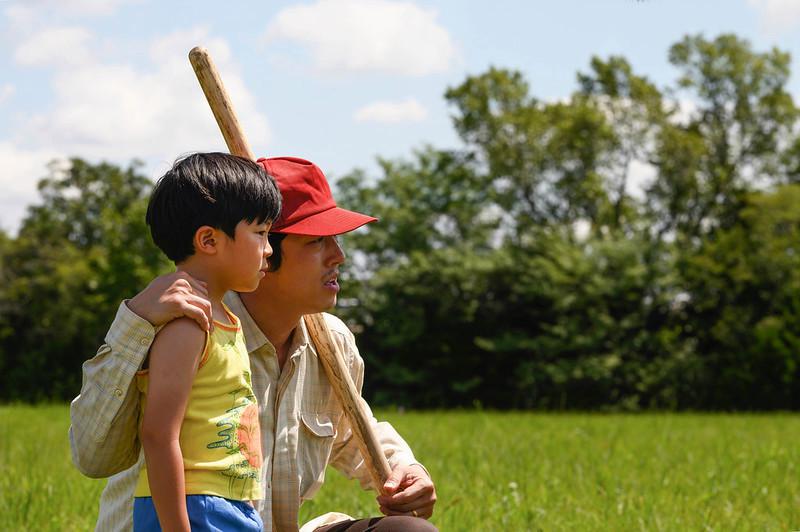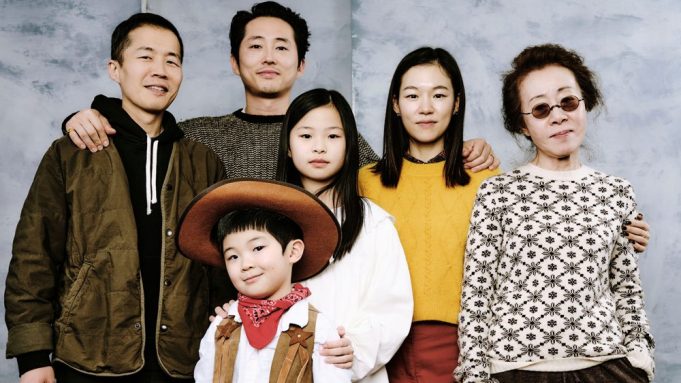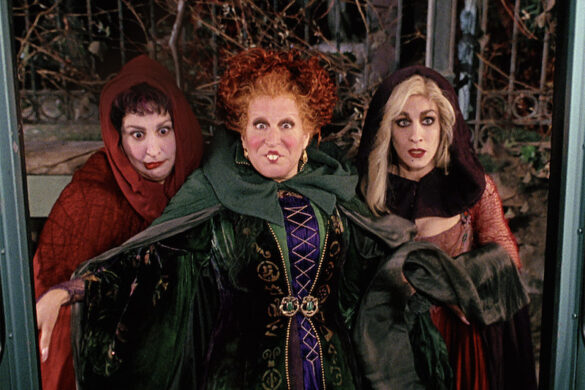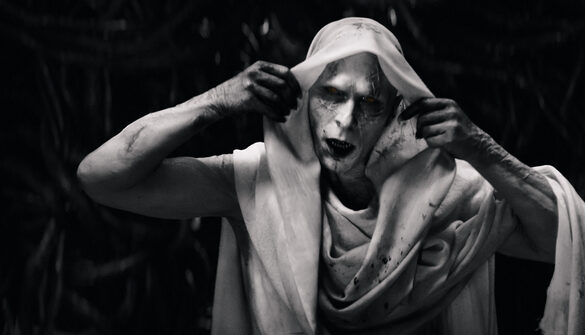Director Lee Isaac Chung translates his memories of being a child of Korean immigrants assimilating into the farmlands of Arkansas into a moving feature film that encapsulates his life story and gives us an authentic tale of fatherhood, identity, and achieving the American dream. “Minari” is a reflective multilayered film that explores multiple themes from three very distinct perspectives. By doing this, we see that immigrant families working hard to achieve the American dream are not without their struggles. But it will undoubtedly shape their identities while also redefining what it means to be a family.

In the film, Jacob (Steven Yuen) abruptly decides to move his family from sunny California to rural Arkansas. They settle on a large plot of land, far away from any signs of civilization, to farm Korean vegetables. It’s a decision that does not sit well with his wife, Monica (Han Ye-Ri), who firmly believes that they were better off with their low-paying job of determining the gender of chickens in California. And yet, despite her justifiable objections, she stands by Jacob and agrees to move with their two children, David (Alan Kim) and Anne (Noel Kate Cho), to a far remote location.
This move also comes with sets of complications. The economic optics of it are not good. Not only that, but David was born with a weak heart, and the nearest hospital is three hours away. As such, Monica has every right to question Jacob’s decision to move to a faraway place from life-saving doctors. Things become a little more problematic when Monica’s mother, Soonja (Yuh Jung Youn), immigrates from Korea to move in with him in their new home to help with the kids. As the financial stresses start to mount and the assimilation difficulties add to the frustrations, it puts more of a strain on Jacob and Monica’s relationship to a point where Monica starts to consider leaving the family.
Though many of “Minari’s” nuances are culturally specific, Chung avoids romanticizing that Korean culture by giving audiences a story about the immigrant experience and the sacrifices they have to make to achieve the American dream. Chung draws from his own experiences as a child of immigrant parents who uprooted the family to live on a remote farm in Arkansas in the 1980s.
And part of those cultural specificities makes watching Yi’s story refreshing because it gives us a new perspective. Whether it’s the multigenerational family household or grandma bringing home the smells of home, there are aspects of the film that will connect more with some members of the audience than others. But it is that idea of finding a new identity, forging a legacy, and family are just a collection of these stories that will resonate with everyone.
As such, “Minari” has to juggle many themes in its near two-hour run time. And though it may look like it has a lot going on, the film takes a slow-burn approach to tell each of the characters’ stories. By doing this, we get to see everyone’s perspectives and how all of their decisions affect the family. This fleshes out their stories and helps us sympathize with their struggles and triumphs as they struggle to assimilate on foreign soil.
“Minari” doesn’t need any big cinematic moments to evoke emotions. Instead, Chung relies on the cast’s performances to tell us this personal story. Jacob is trying to find his identity while also leaving behind a legacy that his family can be proud of. However, his spontaneous decisions may be reckless and sometimes come off as selfish. He is risking more than just money. He is putting his marriage and his family on the line in hopes that his farm, which comes with its own set of problems, will be successful. But selfish actions and stubbornness aren’t character traits that define him as a person, but they validate his existence.
And that comes into conflict with Monica, who frequently criticizes her husband’s actions. While she may come off as a nagging wife, her concerns are justified because she prioritizes her love for her family as well as her well-being. Han isn’t made into a villain or someone who is unlikeable, but someone who we can empathize with because her concerns not only come from a genuine place. She feels almost invisible because Jacob is too stubborn even to notice her concerns. That only adds to loneliness, and the pains of being homesick add to the emotional toll that bears down on her. As such, every one of their arguments adds to her growing resentment towards her husband.
But I connected more so with David and Anne’s story more than anyone else in the film because I’ve lived their story, and I empathize with their experience. I can relate to David’s story as he lived with a serious health condition while also living in a multigenerational household. And Anne shoulders a lot of responsibility as well as the oldest child, having to take care of David while the parents are away at work. These stories work together in harmony to help us understand that even families of color have the same conversations and struggles as any other, despite the language difference.
And seeing David and Soonja’s playful dynamic is such a joy to watch as he tries to teach her the American way of life while she playfully taunts him about wetting the bed, cusses at the TV screen, and teaches him how to gamble. Watching Soonja educate David about what minari represents or when David and Anne try to find a missing Soonja brings us closer to the Yi family.
Even though “Minari” has so much story to tell from many perspectives, the film is surprisingly quiet in its approach to telling its story. It doesn’t need to have any of these overdramatic showy moments to prove itself to its audience. It takes its time to tell its story beautifully and elegantly and uses Lachlan Milne’s cinematography to create a portrait of the American heartland that is moving and poetic.
“Minari” is out in limited theaters now, and will open for a wide release on February 12, 2021.
10/10












1 comment
Very Well Review!